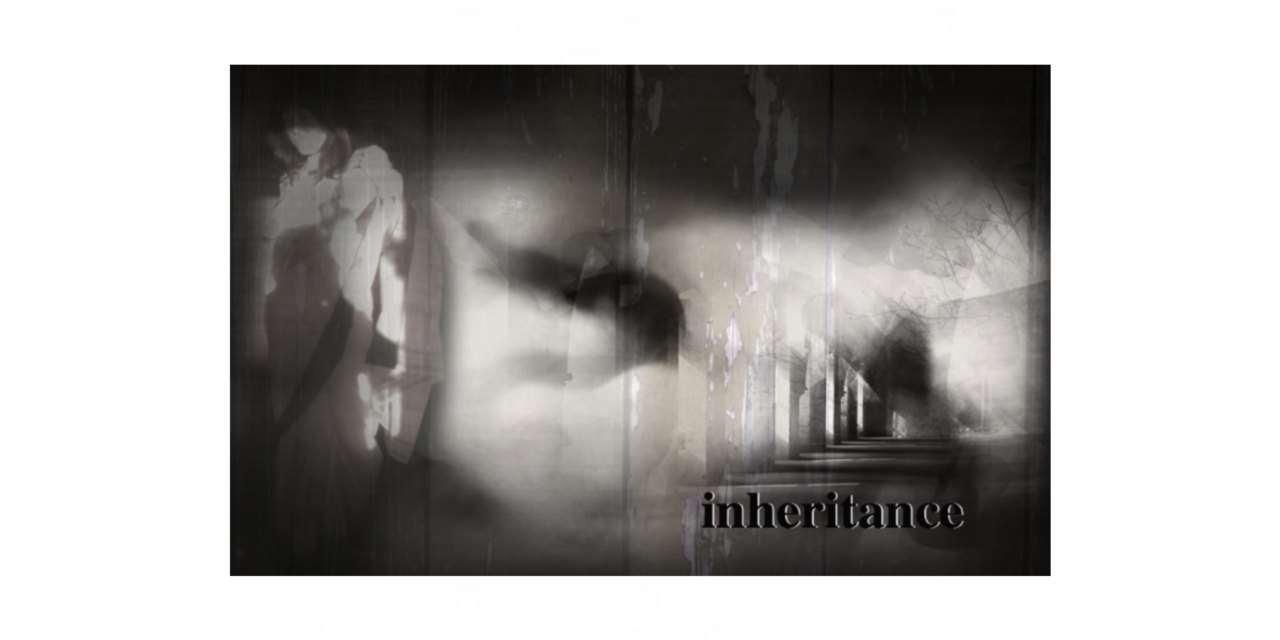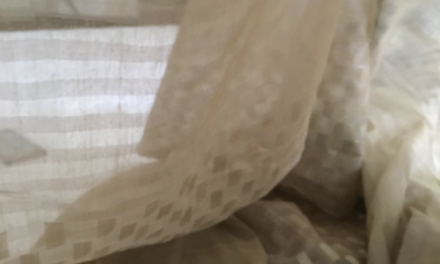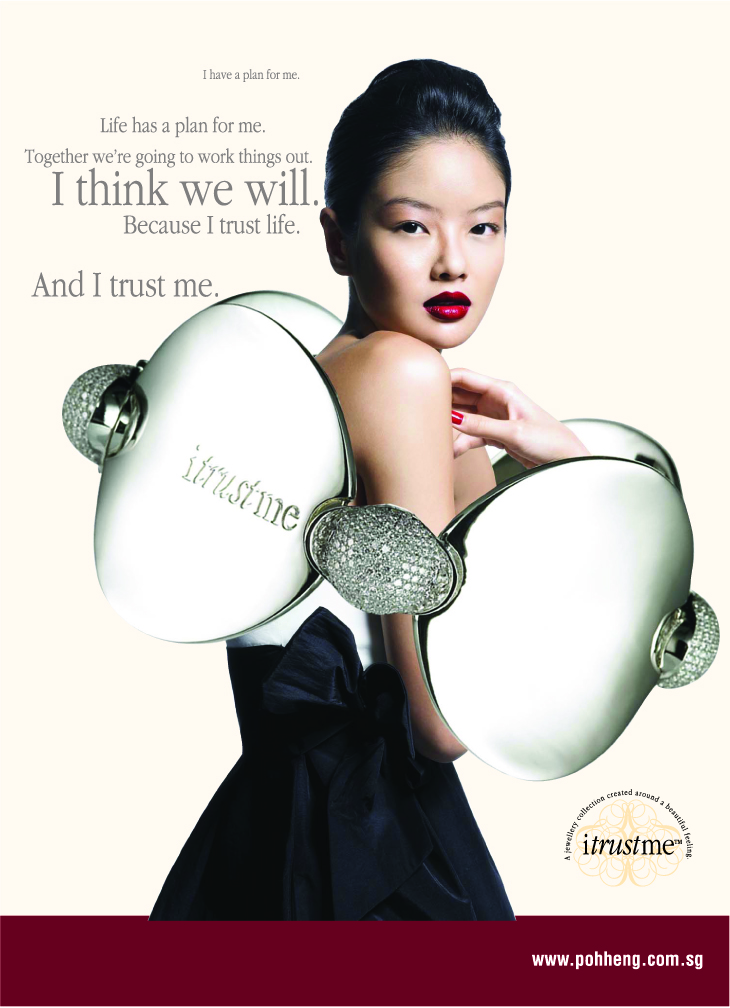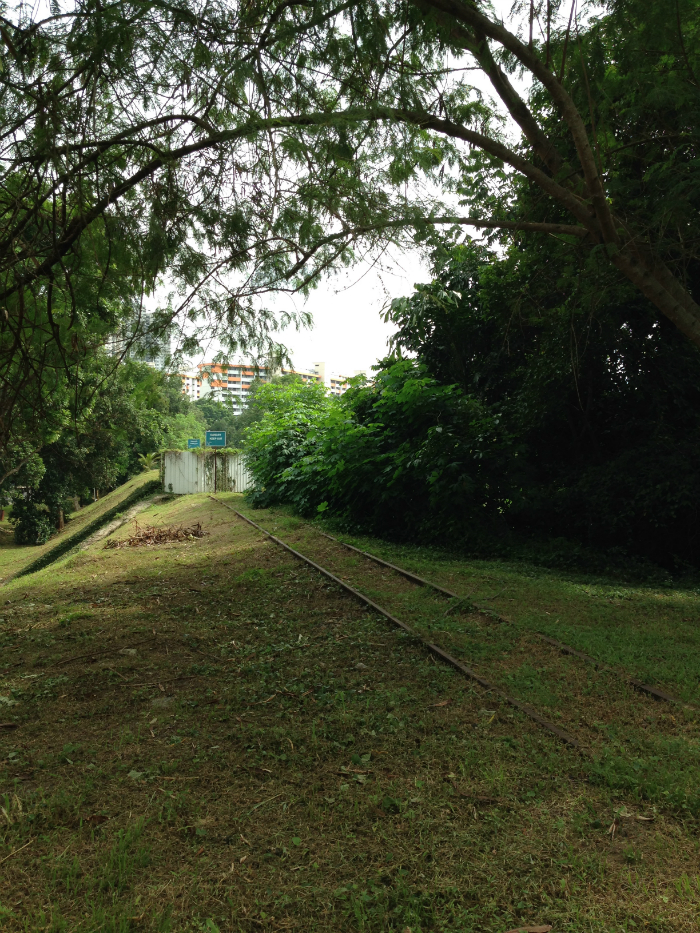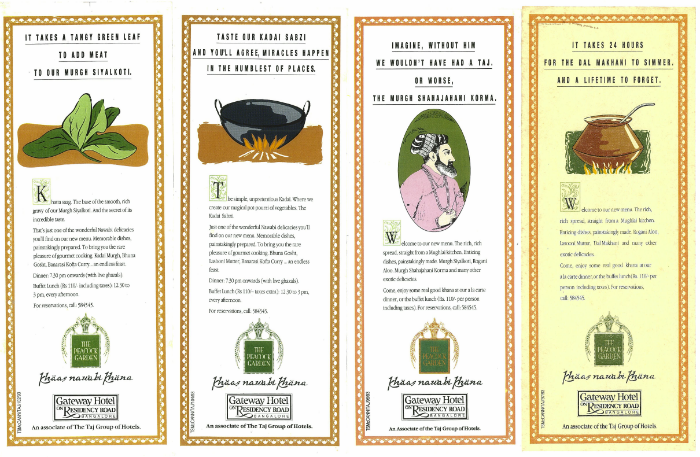“Good morning, Mr Roy, this is Aruna calling from the concierge desk, your driver is here…” the girl’s voice was pleasant and cheerful.
Ronen looked at the clock… nine thirty, the hired car had arrived on time. Surprising.
“Thank you, Aruna, I’ll be down shortly. Could you tell me his name, please?” he asked in his usual brisk manner, pulling the pen and note pad lying on the bedside table toward him. The hotel had thoughtfully placed a set of stationery there too.
Never know where you’ll see signs of Liberalisation, Ronen thought wryly.
He hadn’t stayed in a hotel in Calcutta in years. The first time was back in 1972, when he’d visited with Emma, two years after they were married. No hint of anything liberal about the economy back then, and certainly no embossed stationery on desks and bedside tables at the quiet small inn tucked away behind New Market run by a friendly Anglo Indian lady; he couldn’t afford to stay at the Grand Hotel on Chowringhee then. Emma had loved the place. A fading but pervasive air of the British Raj clung to its planter’s chairs and afternoon teas with scones and floral prints wherever you looked, Emma said she felt as if she were in a play, set in another time and place. But even then, she had wanted to stay with the family.
An uneasy feeling fluttered in at the memory.
“Ram Awtar, sir, just let us know and we’ll call him to the porch…” Aruna replied, sounding helpful. Ronen smiled to himself. Emma would have laughed and declared he just loved all this, didn’t he? People flying around him, getting things done, making his life easy, treating him like a “sahib.”
It would be around four in the morning in London now. He wished he could call her and hear her voice. But of late she had been finding it difficult to sleep, the doctor had prescribed a mild tranquilizer. Ronen had told the doctor he had become too westernised living in London for almost thirty years. Dr Tazdiq Ali, who was a dear friend and originally from Assam, had guffawed and said, “Really? Ronen, old chap, you aren’t doing too badly in that department either after, what… thirty three years?”
“Thirty five… came here in ’60…” Ronen had grinned. They were having their Saturday afternoon meet at the pub nearby. Emma usually went for prayers to the Lauderdale Road synagogue on Saturday mornings. She joined them after that and the two of them had lunch in some quiet restaurant. When exactly, Ronen wasn’t sure, but that had become their Saturday routine. He wouldn’t be in London this weekend. He wondered if Emma would feel lonely.
Ronen pulled out a sheaf of papers from his briefcase, checked to see if they were in order and put them back inside.
Again a riff of uneasiness in him. The house. Ma had left him the house.
***
“What? Ronen! You can’t do that!” he could still hear Emma admonishing him, “Ma wanted you to have the place! You must honour her wish!”
Ronen couldn’t explain to her why he just didn’t want the house where he grew up to be part of his life any more. Or why it set up a sense of disquiet in him.
The sprawling edifice with thick pillars and ornate decorated eaves, plaster falling off here and there. An elevated plinth almost six feet above the ground, wide staircases leading up to the even wider verandahs in grey mosaic skirting the mansion. Someone once said the house had been built by his grandfather back in 1910, though no one knew for sure. The large dimly lit rooms, high ceilings with long thick iron beams and cobwebs beyond the cobweb cleaner’s reach, the massive green doors with shutters built into them; there were many doors. Yet there was no openness anywhere. A closed, dark feeling everywhere. It never let him be. Somewhere along the way, without perhaps consciously realising, he started disconnecting from it all.
When his elder brother left to do his PhD in England, Ronen was only nine years old, Dada was his hero. He had a clear memory of watching Dada pack and deciding he too would go to England to study. And then he would go somewhere farther away to work. At that point, he wanted to be a bus driver.
Two weeks after coming to Glasgow to study engineering, he met Emma. They were class mates. She had joined late as she had not been well. Emma had wild golden hair, her eyes were a pale shimmery blue, she was slightly taller than him and very very thin, she was also possibly the smartest student in class. Emma Tannenbaum, daughter of a well to do Jewish family, who thought about all kinds of things and wanted to make the world a better place, and whom he found terribly attractive from the very first time they met. He had never seen a girl more intense before, girls he had seen growing up were often shy and rarely had any opinion on anything. Did girls study engineering? Anyway, he had no time for such things.
But with Emma it was impossible not to be involved. He knew barely anything about her religion or her world, yet he felt at home with her. As if there was nothing unusual about a Bengali boy from Calcutta, not too tall and well built, not too fair, with black wavy hair, thick shell frames, and a marked Bengali accent meeting and liking a girl like Emma.
It was possibly then that he came to understand, his longings and desires were somewhat different from those of the people around whom he was raised. Not for a moment did he think it was strange to want a person so utterly unlike all that he had ever known. In fact, it felt as if it were the most natural thing.
They started seeing each other and the moment he got a job, he proposed. He had not expected his father to be happy about it. His father wasn’t and said as much in a stentorian trunk call, threatening to cut him off from the family wealth.
Ronen smiled wryly again. He’d married her anyway after he got confirmed at Shell, the oil company where he worked.
Ma had liked her Bouma though on that first visit of theirs. Emma reciprocated the feeling. She would often ask him to plan more frequent visits to Calcutta. She wanted to get to know his family and it was good for the children she’d say; they’d had David and Madhuri quite early in their marriage. He, however, was wary of too much contact. Something always held him back.
When his father passed away in 1976 and then Dada only four years later, he had insisted that Ma move to an apartment. More manageable, he had told her, “I’ll be less worried about you, you know I can’t come all the time from London and Ruma is even further away in America…” Ruma was his younger sister who had moved to Los Angeles with her husband soon after marriage, “At least, here I know you won’t have to lock five entrances and exits every night before going to bed. The house is falling apart, it’s just not safe, Ma… also Buro’s son has taken a flat on the same floor in this building I’ve seen… you know him and his wife. you like them… they’ll keep an eye on you. Who will take care of you in this house? Everyone has gone away. No, no, Ma… you must do this…”
Ma had been happy in the apartment. And he had not stayed in a hotel on subsequent trips. He had come to see her regularly, sometimes bringing Emma or the kids along. At times Boudi, Dada’s wife Alaka, would join them. She was the principal of a school in Delhi. Dada and she didn’t have any children.
He had always thought Ma would give the house to Boudi. Why would she give it to him? He was not coming back to Calcutta, or India. And moreover, she knew he didn’t like the place.
***
“Don’t be silly, Ronen!” Emma had been stern, “You can’t give the house up for sale without at least going and taking a look at it once!”
Ronen left the room and started making his way to the elevator. He had decided to come eventually, but only for a week. He would go and see the house, also locate a real estate agent and hand over the responsibility of finding a buyer to him. Then he would leave.
Paresh Mukherjee, his childhood friend, who still lived in the same neighbourhood, had offered to find a broker. He hadn’t met Paresh in a long time. A couple of years ago, though, Paresh’s youngest daughter Neera had come to do a one year post graduate course at the London School of Economics, that’s when the two of them had got back in touch again. Paresh, or Gora as everyone called him, was very touched by Emma’s hospitality and kindness to Neera.
He’d invited Ronen for a chat and lunch this afternoon. His mother still made Ilish Maach and Chhanar Payesh, Gora had laughed on the phone, and his wife made the best chilli chicken and chow mein, what more could a man want. Then there was Kingfisher beer, he’d said sounding happy and welcoming. He had also asked the agent to come across later in the day to meet Ronen.
The Hilsa fish or Ilish continued to bring the Bengali heart joy wherever it may be, Ronen curbed a smile. Even doctor Ali would rush to East London at the mere mention of fresh arrivals.
***
“So, Shaheb,” Gora leaned back in the cane sofa with fading blue upholstery, and addressed him by that Bengali version of sahib, a word that had seeped into almost all Indian languages from most probably Arabic and was at first used to address the Europeans in India. Now, it had a faintly indulgent nuance when said by a friend or someone who cared for you… of course, like all good words, its complexion could change in an instant, depending on the context. “How is our Emma Boudi? Neera always marvels at how well she speaks Bangla… come come, have some more beer! Roma! Roma! Send Gopal with another bottle!” he called out loudly, grinning and downing almost half a glass of beer in a go.
As the two friends spoke of things consequential and not at all, Ronen wondered how Gora felt so comfortable living where he had lived practically all his life. No change, ever since his parents had moved here when Gora was about five years old. He was extremely bright, a gold medalist from Calcutta University, an academic who taught history at the university and researched the Aryans even now. Kept him thinking, alive, he said.
“You do know Mittir Babu’s wife committed suicide… I never liked that man. and remember the Guptas? Well, they left about ten years ago and sold their entire property to those well known homeopath brothers. My mother has a great time choosing which one to go to next… seems all of them are really useless and only after money,” Gora had an easy laugh and for a moment Ronen missed his mother intensely. Ma didn’t believe in homeopathy at all… all those sugar pills, she’d snort dismissing an entire branch of medicine.
“Ei, what happened to Tuni?” Ronen asked, a memory flashing.
“Tuni?” for a moment gora was confused, then he said “oh, you mean Manik Dutta’s youngest daughter… let me see, hmm… I think she is in Lucknow. Married this nice fellow from Dunlop, they moved to Dubai for a while… two daughters and a son, I think. She was last here when her mother passed away… the house is lying there locked. Roma says she can see from the kitchen young boys of the neighbourhood sitting on the steps outside smoking ganja, late in the evening.”
Ronen remembered a late afternoon in a very hot month. He was studying in the cavernous room at the back, clad in only a thin white cotton vest and loose pyjamas. His scholarship had come through, he would be leaving for Scotland soon. He hadn’t heard the footsteps on the staircase leading up to the room set away from the rest of the house; suddenly the door had opened and a blaze of afternoon sun had blinded him. Silhouetted against it was a slight form.
“Ronu Da!” it was Tuni.
He had been startled. What was she doing here? He had noticed she’d become a little different of late, something about her had changed. She and Ruma and a couple of other girls in the para were good friends and they were together often. The other day she had looked away hastily when he’d greeted her. He had found it odd, though he hadn’t spent much time thinking about it.
She closed the door and came over to the spare single bed against the wall where he’d been lying on his stomach, frowning over some problems he was solving. Now he was sitting up, perplexed.
“Ki re!” Ronen had exclaimed, “tui ekhane?” What’s up… you here?… he’d asked wondering what the matter was.
Tuni was wearing a soft green saree, her hair was open and it fell to her shoulders in tight curls. She was a pretty girl and he knew the boys talked about her. She stood still for a while, not saying anything, her eyes looked alive yet curiously vulnerable.
Then she moved swiftly and sat beside him, she seemed to be breathing erratically, next thing he felt was her hand tugging his right hand, she pulled it to her chest and held it there grasping tight. Ronen was too surprised to say anything. He could feel his ears going hot however. He could understand what she was saying, even if it was completely unexpected. A dense silence filled that dark room in a hot afternoon.
“Ronu Da,” she whispered, was she crying? “you’ll go away? I won’t see you again?” She began to sob and slide closer to him. Sixteen, maybe seventeen she was at the time, light and untouched… her hand letting go of his, her body turning around, coming closer, closer still, her face turned up to him, lips slightly open, eyes growing darker, craving. He had wanted to hold her, he had wanted to… maybe kiss her. But the dark, cloying feeling had come just then.
“Ki re!” Gora said, “Lost in which world are you, my friend! Come, let’s have lunch!”
***
“Ronu Baba, eat nicely… i am seeing you after so long,” Gora’s mother’s voice had grown frail with time. She sat at the head of the table, supervising the serving of the meal.
Ronen enjoyed the Ilish Maach he had to admit, and he didn’t mention his diabetes when the Chhanar Payesh was served. Roma insisted that he have a second helping.
Neera popped in while they were eating. “Hi, Uncle Ron!” she said brightly as she came in and gave him a quick hug, “So good to see you, ran away from work for a bit to meet you! How’s Emma?”
“Emma? What’s wrong with you, Neeru! Emma Mashi not Emma, she’s your aunt!” Roma sounded most upset with her daughter.
Neera started laughing. “How do i explain to them, Uncle Ron, how horrified Emma had looked when i called her aunt! Na, Ma… she likes being called Emma… so that’s that!”
“So are you sure you want to sell the place? You know prices will go up with all this Liberalisation and all?” Gora asked as he put a paan in his mouth after the meal, holding the box with tiny cones of the betel leaf out to Ronen.
Ronen declined with an absent minded nod.
“Absolutely!” he replied, “The old place is a hassle to maintain, and no one’s coming back here… so… doesn’t matter about the price, I just want to get this done, that’s all.”
The broker was a young Gujarati boy. He looked sharp and was clearly happy to get this job. His name was Bobby Thakkar.
“You don’t vurry, sir. I vill find a good buyer. Many peepuls are selling beeg beeg houses now, all going away you see… children not coming back, beeg probelame. But time is very good, sir, lots of multi storey projects coming up, Corporation is giving many many permits… ve vill get a good deweloper or something i am sure…” Bobby assured Ronen.
Ronen handed him some papers and details. The agent left.
It had been a productive day he thought as he too took his leave of Gora and his family, and stepped out looking for Ram Awatar. He had said he’d park the car in the lane at the back.
***
He was standing outside the door of Gora’s house, about to turn left and walk toward the road when he found himself stopping, pausing for a moment.
He knew if he turned his head to the right, it was Manik Dutta’s house just in front, and if he continued to turn his head further to the right, it was their house. The ancestral home of his father Jagadish Narayan Roy, built by his grandfather Srihari Narayan Roy. The house he hadn’t seen in almost fifteen years. And had decided not to see on this trip either.
Something made him want to turn and look.
Yes, it was still the same… tall and high and large, with pillars and decorated eaves and wide verandahs, only now there was more plaster fallen off, a grey and defunct air all around, moss and lichen clinging to weather beaten walls and cornices, there were plants growing in the cracks in the roof and terraces. Here and there patches of exposed bricks.
His eyes fell on the wide staircase. It had shallow steps paved in china crazy leading up from the ground to the verandah above. There were ten steps, their edges rounded and smooth, on either side were comfortably wide ledges on which they’d all sit together in the evenings, he and his friends. Ma and Jethima, his father’s elder brother’s wife, liked to sun the pickles in huge glass jars there too. One day Ruma had fallen off the ledge and had to get stitches on her forehead.
All around the house ran a narrow gutter, part of the drainage system, it passed under the staircase. Ronen felt a funny feeling grip him, was it…? Was there…?
His feet moved fast as he walked up to the house, a memory catching him unawares and disrupting everything.
He reached the staircase and went around to the side. A hollow had been cut into the structure so the gutter could run through. it was about four odd feet high and circular in shape, and created a dark empty space underneath the staircase.
Ronen stood for a second before it, then taking a decision, bent down and peered in.
Pitch dark inside. Uncut grass and foliage clogged the other end. He shook his head. What was he doing? Had he gone mad?
It was at that moment that he saw the cat like glint of the eyes.
Then there was a wild animal sound. Ronen jumped back.
The creature came hurling out of the hollow. It was a man… or perhaps it was once that.
Budho Pagla. Budho the Madman. Who lived under the staircase. No one knew when he had come to live there. He bothered no one and no one said anything to him. He just stayed there, in the black lightless shelter, on one side of the narrow gutter. Ronen had seen Monu’s Mother, the maid, go to the hollow and leave food in a paper packet at times. His hair was long and matted, he was covered in grime so you couldn’t ever tell what his skin tone was, his teeth were large and yellow, his eyes scared you for they seemed not to see anything or know anything at all, his fingers were gnarled and curling, his clothes were simply tatters, one couldn’t call them shirt or pants or pyjama or anything. Budho Pagla lived under the staircase they all knew, but no one looked for him or knew him.
The grey hair was not distinguishable in the matted growth of hair and yet Ronen could tell they were there. Budho Pagla was howling, almost barking now… incessantly. There was frenzy in his eyes, his whole body shook. He moved threateningly toward Ronen.
Again a memory… and Ronen stepped closer to Budho. He thrust his face forward and looked him in the eye and said emphatically but in a calm tone, “Protinium is an isotope of hydrogen.”
The charging, out of control being before him jerked its head up. Budho Pagla fell silent.
When he opened his mouth next, he said clearly in English with a marked Bengali sound, “Protium, not protinium. Hydrogen has three isotopes… protium, deutirium, tritium. They have, respectively, mass numbers of one, two, and three. Hence, their nuclear symbols are 1H, 2H, and 3H.”
Ronen watched fascinated as Budho Pagla stepped backward and went into his shell like home again.
When he was around nine, Budho Pagla had gone crazy one day. Dada had come running when he heard the shouting and he had done exactly what Ronen just did. Budho Pagla had calmed down.
Dada had told him later, he had recognised Budho… he used to be in school with Dada. An extremely bright boy who loved chemistry, his name was Buddhadev Sen. But Dada had said not to mention this to anyone nor to tease the poor fellow. Strange how memories rush at you, pulled out of where who knows.
What if he turned his head, Ronen thought. Swiftly, suddenly, without warning. Would he find Dada standing there? Smiling, perhaps.
***
His first call was to Bobby Thakkar. After that he rang Emma’s number. She would be up and about by now, pottering in the garden. He was missing her pretty badly.
“I think I’ll be able to join you for our weekend date after all,” ronen tried to sound light and casual.
“What is the matter, Ronen? You all right, Bubbeleh?” Emma’s voice always touched him, he almost smiled at the full of urgent love Bubbeleh. Like the Bengalis, turned out Jews too had their strange sounding terms of endearment.
“Emma, the house… I decided maybe we’ll keep it for a while, see how things go… maybe Madhuri or David might like to… some day… come and find out more about things.. who knows…” he felt a lightness as he said the words.
“Oh Ronen,” Emma paused for a bit but he knew she was smiling, “don’t forget to get me fruit cake and guava cheese from Nahoum’s, okay?”
………………………………………………………………………………………..
Letters from 86Q, a collection of stories from a house far away that’s never that far.
I hope you enjoyed the story. It takes place in 1995, in Calcutta. Ronen Roy is around fifty five years old at the time. I’ve used many Bengali words, I hope that didn’t interfere too much with the reading. Ma is mother, Dada means elder brother, when addressing someone older than you but of your generation you usually attach Di (for girls) or Da (for boys) after their name, as a sign of respect. Bouma is daughter in law, Boudi refers to the wife of the elder brother, Mashi is maternal aunt, one’s mother’s sister; Ilish Maach is the Hilsa fish, a type of herring, and a great delicacy for Bengalis; Chhanar Payesh is a dessert with little nuggets of spongy soft cottage cheese in reduced and sweetened flavoured milk; Paan is made with betel leaf wrapped around areca nut, catechu, lime stone powder, and other things, sometimes a pinch of tobacco… it’s a stimulant and also helps digest food. Para is a neighbourhood and Calcuttans have a thing about their para, that mingles affection and a sense of ownership. Nahoum’s, the only Jewish bakery in Calcutta, used to make great fruit cake and guava cheese.
Credits: the texture on the visual is by a dear friend, Katelyn. The background layer of wooden planks is courtesy an uploader. Many people i have met in my life contribute to this story, thanks to all of them; especially an uncle of mine who went to Glasgow to study engineering.

